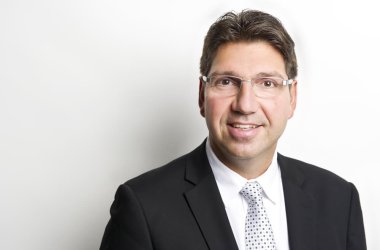Frank Janssens, Vice President, KROHNE Middle East and Africa, has written an exclusive op-ed for January’s edition of CNME, in which he takes a much closer look at what businesses can really do to reduce their carbon footprint and contribute to decarbonisation over the next 12 months, and beyond, and argues its times for business leaders to get serious about climate change.

Amidst Abu Dhabi Sustainability Week, it seems an apt time to reflect a little on decarbonisation and the broader ESG dialogue.
The fourth quarter of 2021 has tried to refocus the world on its own health. We are fortunate here in the UAE to have taken a progressive leadership role in handling the pandemic to the point where we now operate in one of the most normal environments I have experienced.
Whilst safety and medical care procedures, free vaccination, testing and digital data availability via next-level applications like Al Hosn remain at the forefront of our minds, the UAE is shoulder to shoulder with the best in the world.
Face to face conferences have been back for some time, video calls have become optional yet again and major events such as Expo2020 Dubai have been operating without fuss, showcasing to the world what normal looks like from here on in.
COP26, the UN climate change conference, was followed by ADIPEC the world’s most influential meeting place for the oil and gas industry. With decarbonisation and energy transition very much on the industry agenda, where can we make genuine changes for the immediate future without negatively impacting business?
This is the issue on every business leader’s mind today. In fact, I wondered if it was possible to apply learnings from an inclusive workplace discussion and I had chance to catch at ADIPEC to improve the ESG arena. There are three key themes to consider:
Leadership behaviour
Do we as leaders genuinely care about sustainability? I am heavily invested in industrial processes and infrastructure which lend themselves very well to this kind of thinking.
On the other hand, I am also a father and have a deep responsibility to advocate for positive change for the next generations to come. Our company mottos are “measure the facts” and, in terms of sustainability, we play a role in helping our customers in precise measurement across their operations so they can optimise and make informed decisions around reducing, reusing and recycling resources.
Part of our engineering and process advisory role is in understanding issues and recommending efficient solutions, through which we continue to play a small but growing part in the incremental changes underway.
A company like KROHNE is upping its efforts to hold our supply chain as accountable as we are in responsible environmental, sustainable and governance-related choices. Our most recent Sustainability Report (https://krohne.com/en/company/group/quality-health-and-safety-and-environment) points to our ongoing efforts in this area, as we are well aware of our role place in the sustainability chain to make a positive change.
Focus on the lived experience
By bringing to life the small, subtle changes around the office and our global operations we can make a difference. While we are fortunate to be regionally headquartered in a forward-looking society such as the UAE, we need to bring greener ways of working to life around the office too. Can we use less water and electricity in our everyday operations?
Local GCC companies such as DEWA, ADDC, SWCC, NEOM, are strong educators in this space and provide excellent case studies and proofpoints. It is through alchemical public-private partnership that we can combine vision and investment with expertise in innovative measurement and process optimisations solutions.
The end results are greater than the sum of their parts, offering exponential positive outcomes that will likely achieve far more than was originally intended. The important thing is to bring the vision to life and showcase the benefits.
Be the most sustainable person you can be
Beyond workplace behaviours, this final thought can be applied across every part of our lives – do you make greener choices where you can? Most buildings and communities in the UAE offer some level of recycling facility but do we make full use of this?
Where we have buildings with huge windows and natural light streaming in, are we turning off our electric lights? What do we do with our plastic PET bottles? The choices are there to be made and they can be increasingly complicated.
The decision to purchase a fully electric car over a traditional combustion engine or hybrid vehicle opens a discussion around battery technology and product lifecycle overall, when perhaps not owning a vehicle at all is the “greener” option for your family and the topic rolls on.
As a final reflective takeaway I would ask: Does our behaviour and our consequent choices reflect this pearl of wisdom?





